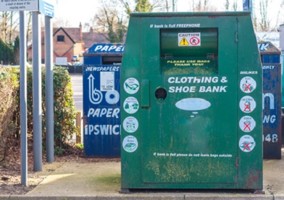Trustees at a poverty relief charity, CAWRM, where funds were held in the private bank account of an ambassador, failed to manage conflicts of interest, a Charity Commission inquiry has found.
Conflicts of interest arose from the charity’s relationship with a company linked to its ambassador, Canon Andrew White. Unauthorised payments were also made to a trustee.
A legal order has been handed down to the trustees of the Hampshire-based charity requiring trustees to introduce personal benefit and conflict of interest policies.
The initial inquiry was opened into CAWRM in 2018 following a compliance visit which uncovered a number of serious governance concerns.
Findings: Charitable funds held in a personal bank account
Investigators found that the charity paid the company, Ace White Gold Ltd, over £14,000 to provide PAYE services. Ace White Gold was set up to trade in commodities and was connected to all of the charity’s founding trustees in some way.
The founding trustees did not have a written agreement in place and no legal advice was sought around the service agreement with the company. An interim manager, who was appointed by the Commission to review the relationship between the charity and Ace White Gold, concluded that the agreement was not in the best interests of the charity.
The inquiry also found that the founding trustees had held charitable funds in Canon White’s personal bank account for a period while the charity was unable to open a bank account.
No safeguards were in place to ringfence the charitable funds from his personal money.
This failure led to the ambassador owing the charity money but due to inadequate record-keeping, the founding trustees were unable to confirm how much.
Investigators also found that books written by Canon White, and funded by the charity, were sold and promoted at events he attended as ambassador. Whilst the trustees understood that Canon White would donate funds raised from the book sales to the charity, they did not have a written agreement in place for this and the inquiry has not seen evidence that any funds were donated.
One founding trustee also received unauthorised payments of over £15,000 for providing services to the charity. The individual resigned as soon as they became aware that this was unauthorised.
Among other serious concerns about financial management, the inquiry found that the charity had transported around £42,000 in cash out of the UK during trips to Jordan and/or Israel in 2018.
Investigators issued an order to restrict the use of this practice, which trustees have since complied with.
The inquiry found trustees had not considered or managed the personal benefit to Canon White and did not always act independently of him, as was their legal duty. An ambassador is not a formal role in the governance of a charity, and it is the trustees that should hold overall management, responsibility and control of a charity.
Actions taken
As of 31 July 2020 Canon Andrew White is disqualified from acting as a trustee and/or holding any office or employment with a senior management function in all charities for a period of 12 years. This action relates to his conduct in another charity.
The inquiry served the trustees with an order under section 84 of the Charities Act. This requires action to strengthen the charity’s governance such as by introducing personal benefit and conflict of interest policies.
It also requires the current trustees to consider the recovery of any personal benefit to the ambassador and the unauthorised salary payments made to one of the founding trustees.
‘Good governance is more than a bureaucratic detail’
Tim Hopkins, assistant director of investigations and inquiries at the Charity Commission, said: “This case is a reminder that good governance is more than a bureaucratic detail.
"It should serve as a lesson for all charities in the importance of strong independent boards that protect and steer their charity towards furthering its purpose, in the interests of those it is set up to help. The role of an ambassador should be to support a charity and help it thrive.
“Our inquiry exposed a number of inappropriate arrangements and transactions which were overseen or permitted by the former trustees – including failures to manage the charity’s relationship with its ambassador, identify and manage conflicts of interest, and prevent private benefit. We will monitor the trustees’ compliance with our order to ensure that the changes we need to see are made.”
Trustee response
CAWRM's trustees said they are making progress on the Commission's requirements.
They said: “We would like to reaffirm and acknowledge the role that the Charity Commission plays in ensuring charities can function properly.
"On 27 May 2020 the Charity Commission issued a S84 Order giving the trustees a nine-month window in which to respond. One order was to seek legal advice over a number of issues, and accordingly we engaged with Reid who had been appointed interim manager of the charity by the Charity Commission.
“Reid has confirmed that his appointment does not raise any conflict of interest and is working with the trustees in order to satisfy the order raised by the Charity Commission. It has been noted that Reid was of the opinion that the trustees had unwittingly, rather than deliberately, taken certain actions at the commencement of the charity. However, there does not appear to be any acknowledgement of this independent view on any public document issued by the Charity Commission.
“The Charity Commission has completed its Inquiry and on 23 October issued its decision as a matter of public record. The trustees will respond by the specified date of 21 February 2021 to the order raised, and expect that the Charity Commission will be accepting of the outcome in order to continue its work with those who most need it.”
Related articles












